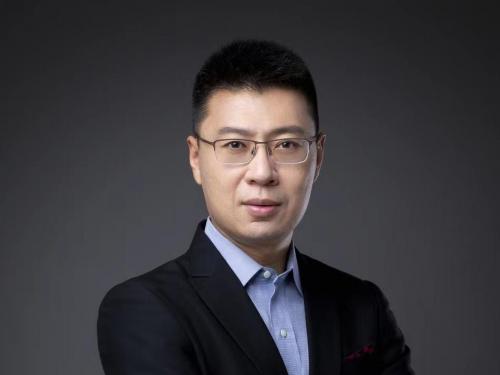
Prof. Nan Chen, The Chinese University of Hong Kong, Hong Kong, China
Speech Title: We will be announced soon.
Bio: Nan Chen is Professor of Systems Engineering and Engineering Management at the Chinese University of Hong Kong. His research interests include financial engineering and FinTech, particularly quantitative methods in finance and risk management, Monte Carlo simulation, and applied probability. He has published in top journals and referred conference proceedings in the fields of operations research and quantitative finance, such as Review of Financial Studies, Journal of Econometrics, Operations Research, Mathematics of Operations Research, Mathematical Finance, Finance and Stochastics, Journal of Economic Dynamics and Control, and so on. The previous research topics included credit spread modeling, stochastic differential game in convertible security pricing, Monte Carlo methods in American option pricing and the related sensitivity analysis, simulation of stochastic differential equations, exotic option pricing under jump diffusion models, the dual methods for stochastic dynamic programs. Currently, he is mainly focusing on modeling of systemic contagion and liquidity risk, complex social and financial network, single- and multi-agent reinforcement learning, Monte Carlo methods in stochastic control and learning, and Ito-Taylor expansions for jump diffusion models. Part of his research is supported by the scheme of General Research Fund, Hong Kong Research Grant Council.

Prof. SIAU Keng Leng, Singapore Management University, Singapore
Speech Title: We will be announced soon.
Bio: Professor Siau is the Lee Kong Chian Professor of Information Systems at the School of Computing and Information Systems, Singapore Management University. From June 2021 to June 2024, he was the Head of the Department of Information Systems and Chair Professor of Information Systems at the City University of Hong Kong (CityU). He was also an Affiliated Chair Professor of the School of Data Science at CityU and an Affiliated Professor of the CityU Academy of Innovation. From 2012 to 2021, he was Head (“Business Dean” equivalent) of the AACSB accredited Business Program at the Missouri University of Science and Technology (Missouri S&T). Before joining Missouri S&T, he was the Edwin J. Faulkner Chair Professor and Full Professor of Management at the University of Nebraska-Lincoln. Professor Siau received his Ph.D. in Business Administration with a specialization in Management Information Systems from the University of British Columbia. Professor Siau has more than 350 academic publications. According to Google Scholar, he has a citation count of more than 24,000. His h-index and i10-index, according to Google Scholar, are 77 and 205 respectively. He is also on the Stanford University list of the world’s top 2% most-cited scientists. Professor Siau is an AIS Distinguished Member–Cum Laude. He is a recipient of the prestigious International Federation for Information Processing (IFIP) Outstanding Service Award in 2006, IBM Faculty Awards in 2006 and 2008, IBM Faculty Innovation Award in 2010, AIS Sandra Slaughter Service Award in 2019, AIS Award for Outstanding Contribution to IS Education in 2019, AIS Fellow Award in 2022, and AMCIS Outstanding Leader Award in 2023.

Prof. Junzo Watada, Waseda University, Japan
Speech Title: Human-Centric Computing and Its Application to Linguistic Analysis in a Multi-Uncertainty Environment in Finance
Bio: Junzo Watada received the B.Sc. and M.Sc. degrees in electrical engineering from Osaka City University, Osaka, Japan, and the Ph.D. degree from Osaka Prefecture University, Sakai, Japan. He is currently a Professor with Universiti Teknologi Petronas, Malaysia, a Research Professor with the Research Institute of Quantitative Economics, Zhejiang Gongshang University, China, and a Professor Emeritus with Waseda University, Japan. His research interests include big data analytics, soft computing, tracking systems, knowledge engineering, and management engineering and finance engineering. He is a Life Fellow of the Japan Society for Fuzzy Theory and Intelligent Informatics and the Biomedical Fuzzy System Association.

Prof. Jiang Xiao, Huazhong University of Science and Technology (HUST), China
Speech Title: We will be announced soon.
Bio: Dr. Jiang Xiao is currently a Professor in School of Computer Science and Technology at Huazhong University of Science and Technology (HUST), Wuhan, China. She received the BSc degree from HUST in 2009 and the PhD degree from Hong Kong University of Science and Technology (HKUST) in 2014. Her research interests include blockchain and distributed computing. Jiang has directed and participated in many research and development projects and grants from funding agencies such as National Key R&D Program Youth Scientist Project, National Natural Science Foundation of China (NSFC), Hong Kong Research Grant Council (RGC), Hong Kong Innovation and Technology Commission (ITC), and industries like Huawei, Tencent and Intel, and been invited by NSFC in reviewing research projects. Her awards include CCF-Intel Young Faculty Research Program 2017, Hubei Downlight Program 2018, ACM Wuhan Rising Star Award 2019, Knowledge Innovation Program of Wuhan-Shuguang 2022, and Best Paper Awards from IEEE ICPADS/GLOBECOM/GPC/BLOCKCHAIN.

Prof. Phillip YAM, The Chinese University of Hong Kong, Hong Kong, China
Speech Title: We will be announced soon.
Bio: Professor Phillip Yam received his BSc (ActuarSc) and MPhil degree from the University
of Hong Kong, a Master of Advanced Studies in Mathematics from University of Cambridge,
and a DPhil from University of Oxford. He is a full-time Professor at the Department of
Statistics, Director of Quantitative Finance and Risk Management Science programme, and
Assistant Dean (Education) of Faculty of Science at the Chinese University of Hong Kong.
He has been appointed as a research fellow in the Hausdorff Research Institute for
Mathematics at the University of Bonn, and a Visiting Professor in both the Department
of Statistics at Columbia University in the City of New York and Naveen Jindal School of
Management at University of Texas at Dallas. He has published more than a hundred journal articles in actuarial science, applied
mathematics, control theory and engineering, data analytics, financial mathematics and
economics, operations management, probability and stochastic analysis, and statistics.
He also serves in editorial boards of representative journals in these areas. And he
will soon deliver another plenary talk in the 28th International Congress on Insurance:
Mathematics and Economics, being affiliated with the top actuarial journal worldwide.
Besides, he wrote the first ever monograph on mean field theory, and another
on "Financial Data Analytics" recently published in Wiley Finance Series; one of his
original research outputs Included in the latter book, “Comonotone-independence Bayes
Classifier (CIBer)”, was also awarded a Silver Medal in the 48th International
Exhibition of Inventions Geneva in 2023.

Prof. Yinqian Zhang, Southern University of Science and Technology (SUSTech), China
Speech Title: We will be announced soon.
Bio: Dr. Zhang is a Professor of the Department of Computer Science and Engineering at SUSTech and director of the Information Security Research Center at RITAS and TeeCert Labs of SUSTech. Before joining SUSTech in 2021, he was an Associate Professor of the Department of Computer Science and Engineering at The Ohio State University, where He started his academic career in 2015 and got promoted to tenured Associate Professor in 2019. He received his Ph.D. degree from University of North Carolina at Chapel Hill adviced by Prof. Michael K. Reiter. His research interest lies in the security of computer systems. His current research focus is the security and applications of confidentail computing and trusted execution environments, which broadly involves research on hardware vulnerabilities, microarchitectural side channels, operating systems and virtualization, program analysis, formal verification, crypto protocol design and analysis, blockchain and decentralized computing, machine learning, etc.

Mr. Ahmet Tugrul Bayrak, Ata Technology Platforms, Turkey
Speech Title: We will update soon.
BIO: Ahmet Tugrul Bayrak is the Data Science Manager at Ata Technology Platforms in Turkey. He holds a Bachelor of Science degree in Mathematical Engineering from Yildiz Technical University and another in Computer Engineering from The Technological University of the Shannon. Additionally, he attended Uppsala University for a Master's degree in Computer Science. With a career rooted in software engineering and data science, Mr. Bayrak has contributed to numerous projects, particularly in Natural Language Processing and Recommender Systems. Alongside his industry work, he remains active in academia, with a substantial portfolio of published research papers.

Dr. Thierry H. Brutman, EDDA Stock Finance, France
Speech Title: AI as a Middleware: AI-Driven Enterprise Optimization System for Integration with Existing Corporate Software
Abstract: Artificial Intelligence (AI) is not only transforming financial services but also reshaping enterprise-wide decision-making. Today’s corporate software often operates in silos – treasury, control management, supply chain, and marketing systems function in isolation – leading to inefficiencies, delays, misaligned goals, and suboptimal decisions. While ERP systems attempt to integrate business functions, they fail to unify real-time financial, operational, and strategic decisions across an organization. This fragmented environment causes poor decision-making and even organizational conflicts as departments optimize for local KPIs rather than global objectives.
This paper introduces a new paradigm where AI serves as a unifying middleware layer that orchestrates decision-making across disparate systems and departments. In this vision of an AI-driven self-managed company, AI dynamically prioritizes and ranks departmental choices based on global enterprise performance instead of isolated metrics. By leveraging financial option models and AI-coordinated decision matrices, the system optimizes enterprise-wide performance in real time. The result is improved Return on Equity (ROE), more coherent investment and pricing strategies, proactive risk management, and streamlined operations across the board. Using real-world case studies and financial modeling, we demonstrate how an AI middleware can standardize data company-wide, eliminate inefficiencies, and enhance decision accuracy. The findings point toward a fully optimized, autonomous enterprise where cross-departmental synergy replaces silos. This visionary AI-as-middleware approach lays the groundwork for a new generation of intelligent organizations, and paves the way for industry and researchers to collaborate on bringing unified AI optimization into mainstream corporate practice.
BIO: Thierry H. Brutman is a seasoned financial analyst and FinTech innovator with a rich blend of industry and research experience. He began his career at IBM, where he spearheaded advanced financing risk methodologies and credit risk management for the Dealer Channel. During his tenure, he orchestrated the financial rescue of one of the largest publicly-listed computer dealerships in Europe and played a key role in spinning off IBM’s PC division. These high-stakes projects honed his expertise in corporate finance, risk mitigation, and strategic restructuring.
Since 2005, Mr. Brutman has focused on bridging finance and technology. He is the founder and CEO of EDDA Stock Finance, a FinTech firm specializing in innovative financial solutions and enterprise risk management. At EDDA, he pioneered a new options-based investment model that laid the foundation for the “self-managed company” concept. This model boosts AI effectiveness in organizations by treating AI as a middleware that optimizes the use of all corporate software systems simultaneously, dramatically improving decision-making efficiency. Thierry Brutman’s contributions to financial technology are backed by a strong record of thought leadership: he holds several patents related to FinTech and AI-driven enterprise optimization, and has authored publications in IEEE proceedings and international finance journals. As a visionary in AI orchestration for businesses, he is passionate about driving the next wave of enterprise optimization. He actively collaborates with academic researchers and industry professionals, establishing himself as a valuable partner for those seeking to transform organizational performance through AI and advanced analytics.

Prof. Diana Zuhroh, University of Merdeka Malang, Indonesia
Speech Title: Digital Platform-Based SME Management for Achieving Sustainable Performance
Abstract: Digital-based management of MSME sector businesses is increasingly becoming a necessity after the Covid-19 Pandemic. It is important for MSMEs to implement comprehensive business digitalization in all existing functions. This paper presents the results of research on the clustering of digital platform usage by MSMEs including social media, e-commerce, digital wallets, and sharing economy which is further linked to the use of accounting information systems and financial performance achievements. The study found empirical evidence that the majority of MSMEs are in the early to medium development stages (1–6 years), which indicates that many MSMEs are still in the growth and adaptation period. From the formal education level, the majority of MSME actors come from a secondary education background (high school or equivalent), indicating that the MSME sector is filled with individuals with sufficient formal education, but not yet at the college level
The majority of MSMEs are more familiar with the use of Social Media to support their business especially Instagram, Facebook, and Tik Tok. More detailed results show that the 2 most used e-commerce by MSMEs are Shopee and Tik Tok Shop. For Digital wallets, the 2 most used are Dana and Shopee Pay, while for Sharing Economy, the 2 most used are Go Jek and Grabb.
For accounting records, almost all digital platform users use Cash Books (receipts and expenses) with the highest intensity of use among digital wallet users. In relation to achieving financial performance, almost all MSMEs using digital platforms experienced increased sales and profits.
The results of this study are useful for parties interested in designing effective guidance and coaching. To obtain optimal results MSME business digitalization training should be adjusted to the age of the owner or employee. For MSMEs that are already at the intensive stage of using digital platforms, training can be increased by using simple Artificial Intelligence (AI), digital distribution, and more advanced platforms.
BIO: Prof. Diana Zuhroh, CA. is a lecturer in the Accounting Study
Program, Faculty of Economics and Business, Master of Accounting
Study Program, Doctoral Study Program in Economics, and Doctoral Study Program in Accounting, Graduate School, University of Merdeka Malang, Indonesia.
Prof. Zuhroh has experience teaching Auditing and Management Accounting courses in the undergraduate program, as well as Audit and Attestation Services, Cost and Management Accounting, and Public Sector Audit courses in the postgraduate program. In the doctoral program, she teaches Research Methods, Behavioral and Entrepreneurial Accounting Research, and Information Systems and Auditing Research.
Her scientific work has been presented at numerous national and international scientific forums and published in reputable national and international journals. Based on her experience in fostering cooperatives for over 10 years, her current research and studies focus on business digitalization and accounting for MSMEs. According to her, the MSME sector is the backbone of the Indonesian economy so for its development and sustainability, academic contributions are needed.